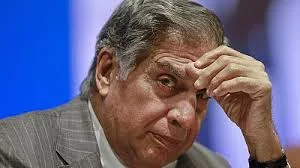How uncertain is the world! And in this
uncertain world, happening of a very low-probability event, that too, at the
top of India’s foremost conglomerate, the Tatas, that has its tentacles spread
across the globe employing around 700,000 people, operating in a wide array of
industries right from salt to software with a market capitalization of over
$125 bn, is for sure, all set to rock the corporate world.
That’s what indeed happened when the
news came out that the Board of Tata Sons—an unlisted company, two-thirds of
which is owned by Tata Trusts, and is the holding company of the Tata
conglomerate—has shown the door to its present Chairman, Cyrus Mistry with a
terse statement: “In its collective wisdom and on the recommendation of the
principal shareholders and in the long-term interest of the Tata group and Tata
Sons, the Board has resolved to replace Cyrus Mistry as Chairman”.
The media is on its feet crying in
chorus, dubbing it as the most unprofessional act. Some said that it does not
speak well about the reputation that the Tatas have earned over the decades in practicing corporate governance. Some have indeed cried foul, for, in their
view, no opportunity was afforded to the incumbent for offering his point of
view. Some have, of course, hazarded the reasons for the sudden ouster.
Truth, however, is still allusive. For,
earnings of seven out of the nine-largest listed Tata companies are below their
overall cost of capital. In the same vein, 60% of capital is deployed in such
Tata group companies which are yielding returns below its funding cost. And
yet, there is no sign of refocusing on portfolio of its businesses, which
indeed is the practice among multinationals. Instead, the leadership appears to
be sitting pretty contented with its expanded girth, while what the three major ailing companies calling for is: action to turn them round.
 But then, who can wish away the fact
that when ownership of a business is concentrated, large shareholders are
certain to play an active role in monitoring the management. For, it ensures
their interests. Research on corporate governance also indicates that a higher
level of ownership concentration offers less voluntary disclosure. And Tata
Sons is no exception to this revelation. That is precisely the reason behind
shareholders’ ignorance about: What prompted the selection committee to first
pick Mistry as Chairman and then for the Board to find him inadequate to the
task after four years.
But then, who can wish away the fact
that when ownership of a business is concentrated, large shareholders are
certain to play an active role in monitoring the management. For, it ensures
their interests. Research on corporate governance also indicates that a higher
level of ownership concentration offers less voluntary disclosure. And Tata
Sons is no exception to this revelation. That is precisely the reason behind
shareholders’ ignorance about: What prompted the selection committee to first
pick Mistry as Chairman and then for the Board to find him inadequate to the
task after four years.
That aside, what is more important here
is: Cyrus Mistry, being an insider to the Tata Sons as its board member since
2006 is fully aware of its style of functioning. But surprisingly, he sent a
scathing e-mail message to the board members of Tata Sons listing serious
governance violations in the group companies, the affairs of which he happened
to oversee as Chairman till yesterday, and importantly, bemoaning that he was
turned into a “lame duck” Chairman from the day one of his appointment by the
holding company and its lords.
Now, all this drama that revealed many
hitherto untold truths to the stakeholders at large has also raised a few
fundamental questions that merit our attention:
After all as a Chairman when one’s basic desire to get recognized and
acknowledged is not met with and, importantly, when one’s need for being
listened to what one says and what one believes in is not fulfilled, shouldn’t
one simply walk out of the situation,
for, otherwise it ruins the prospects of the very business that one is heading.
But that didn’t happen in the instant case is, of course, a different matter.
But
then, that’s what life is all about: errors cannot be eliminated by even the
best-intentioned and the most capable people! At least that is what this whole
Tata episode is pointing to. It also tells us what leadership is supposed to
do: to steer the organization through the storm that too with clarity and, of
course, boldly and importantly, not to remain a mere lame and sitting duck.

No comments:
Post a Comment